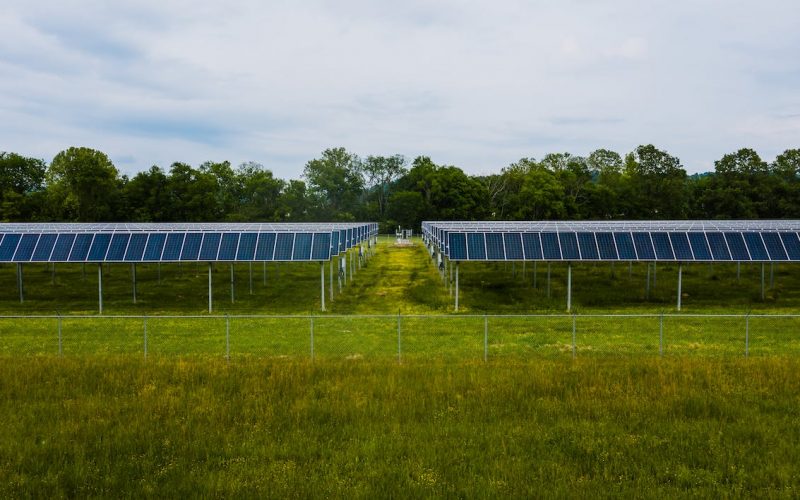Technology is continuing to cause big changes in the hospitality industry, and a lot of these changes are good because they’re making things more efficient and less expensive. For example, energy savings management system are becoming popular because they help save money on utilities.
In Australia, there’s a plan to provide solar power to 50,000 homes through a decentralized electric grid, and this won’t cost residents anything. India and China are both working on creating huge solar farms – China is even building one that floats on top of an abandoned coal mine.
It looks like the world is moving away from using dirty and expensive energy sources. Now is the perfect time for hotels to start taking advantage of energy-saving technologies. Here are some ways that all kinds of properties can save money and energy using technology:
Solar Panel
Solar technology isn’t just benefiting economic superpowers and suburbanites – hotels of all sizes are reaping the rewards too. With photovoltaic technology becoming increasingly affordable, more and more hotels are using it to reduce their energy costs.
Solar power is a great opportunity for businesses to save on energy costs. By using solar power, hotels can reduce their consumption of energy from the grid and sell any excess production back into the grid.
Climate Control
If there’s one thing that all businesses can agree on, it’s that climate control is a top priority. Whether it’s making sure the office isn’t too hot in the summer or preventing pipes from freezing in the winter, every business needs to be able to maintain a comfortable temperature.
By using these technologies, businesses can monitor their energy usage and make adjustments to improve efficiency. There are plenty of energy-management tools available to help businesses save on energy costs.
Smart thermostats allow users to program their energy consumption around daily occupancy needs, while smart sensors monitor fluctuations in real-time occupancy. By using these tools, businesses can reduce their energy consumption and lower their energy bills.
Hotels are finding that smart energy savings management systems maximize their energy savings. These systems use machine-learning algorithms and data sets such as historical thermodynamics, local weather patterns and peak demand loads to optimize energy consumption in real-time, all year round.
Heat Pumps
There are lots of ways that businesses can save on heating costs, and air source heat pumps are one of them. Heat pumps work by transferring heat from one place to another, so they can be used to either heat up a building or cool it down. This makes them a great option for businesses who want to save on energy costs. ASHPs work by using the principles of vapor compression-refrigeration to absorb heat and release it elsewhere.
This is great for hotels because ASHPs can be used as energy-efficient space heaters or coolers. This means that there’s no need to overload a central HVAC system to accommodate the specific needs of a smaller or compartmental space.
Water Management
Every hotel needs water to stay open, just like every person needs water to live. Water is used in manufacturing processes, and it’s also necessary to provide customers with food and drinks, as well as clean bathrooms. Though it’s an essential part of running a hotel, water can also be a big expense.
When you think about it, a single leaky toilet can waste a ton of water and rack up a pretty expensive bill. But by monitoring water lines with smart, low-cost water meters, businesses can see a return on their investment in water consumption in less than five years.
Technology is always advancing, and with that, people’s tastes, preferences, and needs change too. It can make old industries obsolete and create new ones seemingly overnight. This can cause a shift in the balance of supply and demand across markets. Even though things are always changing, one thing that stays the same is our need for energy consumption.
No matter what kind of business you’re running, whether it’s manufacturing products, making sure customers have a good time, or keeping employees happy and productive, energy consumption is always part of the equation. But there are plenty of opportunities for hotels to save on energy costs by adopting new technology.
Lighting Technology
Smart energy savings management systems are not only limited to HVAC systems. Smart lighting technology also enables hotels to understand their energy needs, automate consumption and adapt to real-time changes in occupancy. This helps hotels save money on energy costs and provide a better experience for guests.
Companies that have switched to LED lighting have seen some serious benefits, including slashed energy costs and increased productivity. Smart lighting systems like EMS let properties tailor their lighting to specific needs and schedule, resulting in better workflow and energy savings.
Key Takeaway
Energy savings management systems can help hotels save money on energy costs, and this can ultimately make them more profitable. Additionally, hotels that use these systems will be better able to adapt to changing technologies.

